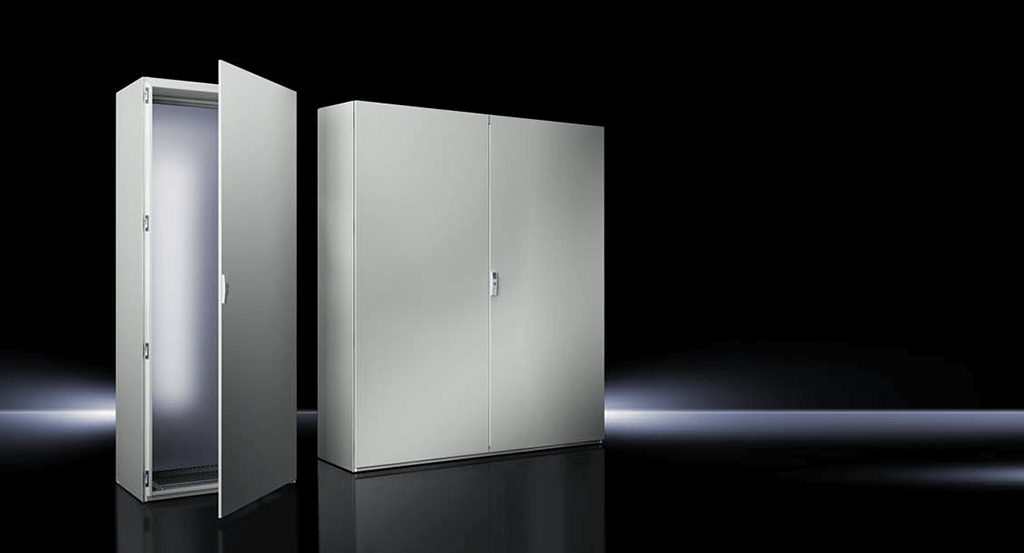
You hear it quite often in today’s industrial manufacturing conversation: flexibility. In an increasingly complex, global marketplace, the idea of flexibility has transcended the status of industry buzzword and has become a necessity for companies to remain competitive and profitable. But it is essential to define what specifically flexibility entails before it can be leveraged as part of a strategic production plan.
This begs the question: Why is flexibility so critical for today’s manufacturing companies and what benefits does flexibility provide? In the case of modular enclosures, flexibility is the capacity to pivot, respond, and adapt to the changing variables and elements in the production lifecycle. The advantages companies yield from this ability not only helps achieve business goals but can also help reach new benchmarks that were previously unattainable.
With this in mind, let’s examine the key pillars of flexibility to better understand the ways in which companies can optimize their workflows by adopting a flexible way of thinking about their enclosures strategy.
Unlocking increased efficiency
The first pillar of flexibility as it relates to modular enclosures is increased efficiency at every stage or instance in which an enclosure is deployed. From a metaphorical standpoint, think of a modular enclosure as an adjustable hat that can be sized up or down as needed to fit a variety of head shapes and sizes. Modular enclosures operate on essentially the same premise, as their design, production, and deployment can be customized or tailored to fit specific industrial or manufacturing needs.
Compared with standardized, unibody enclosures, modular enclosures like Rittal’s innovative TS 8 line are designed for a variety of applications such as panel building, low-voltage switchgear, and mechanical engineering are engineered for the ultimate in durability for use in the harshest environmental conditions.
In addition to the multitude of applications, modular enclosures unlock increased efficiency and promote flexibility through a variety of other avenues. Innovative modular frame structures create both inner and outer mounting levels inside the cabinet, which allows for more electronics or switchgear components within the enclosure. Increased degrees of baying on all sides of the enclosure allow for integration into spaces with size limitations, and a variety of connection configurations make for easy cabinet wiring regardless of how the enclosure is deployed.
Faster, more efficient configurations, simplified installations, and interchangeable panels also help create optimized efficiency by streamlining tedious, time-wasting manual processes that once required high degrees of human intervention and inflated operational costs.
Enhanced automation potential
Aside from the automated nature in which modular enclosures and panels are produced or modified via design and production programs such as EPLAN, modular enclosures help promote flexibility via the potential for integration into Industry 4.0-driven production processes. The ability to easily modify, swap, or alter panels allows for automation features such as touchscreens, real-time monitoring and network alerts, IoT-enabled electronics, and other software enhancements to ensure the electronics inside the enclosure are functioning at optimal levels.
Perhaps the most mission-critical automation feature modular enclosures allow for is the integration of climate control and cooling solutions that reduce energy costs and extend the lifespan of the enclosure and its associated electronics.
Through digital alerts and notifications, touchscreen interfaces, and mobile integrations and apps, climate control solutions such as Rittal’s Blue e+ line of cooling units helps plant managers and engineers to monitor and adjust cooling outputs and temperature levels with more accuracy and precision.
Rittal’s Blue e line of cooling units and air conditioners also leverages automation principles to help optimize operations in the service of reducing energy use. Notifications about filter fan lifespan help engineers better plan a replacement strategy to ensure clean filters are always available and ready to be deployed to help cooling units work more efficiently.
Each of these enhanced automation elements drive the capability to respond to the variant-rich nature of today’s industrial manufacturing atmosphere to help companies work smarter in achieving their revenue targets and overall business goals.
Variety of applications
One of the more potent assets in the arsenal of modular enclosures in terms of creating flexibility is their capacity to be successfully deployed in a variety of environments, production applications , and industries. Unibody enclosure designs have limited industrial or manufacturing applications, thus limiting the flexibility companies can exhibit, while modular enclosures and their capacity to be altered or modified based on context allows companies to react — and in some cases take a more proactive approach — to the constantly shifting sands that are production lines.
Modular enclosures like Rittal’s TS 8 can be modified and equipped to operate in manufacturing sectors as diverse as automotive, food and beverage, retail and logistics, and others. Because of the size variety of Rittal’s modular enclosures, plant engineers and managers can utilize the right size enclosure for the right production line and modify panels as needed to best fit specific wiring schematics.
In addition, the modular nature and variety of enclosure sizes allows for more efficient cabling and connection to larger enclosures without sacrificing precious space on the production room floor.
North Carolina-based beverage producer Deutsche Beverage deployed Rittal’s modular enclosures to facilitate a variety of beverage production processes that, while connected in the company’s internal value chain, must remain physically separate due to space constraints within the production facility. Rittal’s partnership with EPLAN not only makes it simple, fast, and cost-effective to configure, design, and produce the panels necessary for effective beverage production, but the modular nature of the panels and enclosures afforded the beverage company the capacity to create new production lines as well as revise current production programs based on the wants and needs of the consumer.
The ability to change course, react to changing market or industry variables, and adapt to overcome challenges is the truest definition of flexibility, and modular enclosures provide companies the greatest opportunity to achieve this level of flexibility in the short, mid-, and long term.

